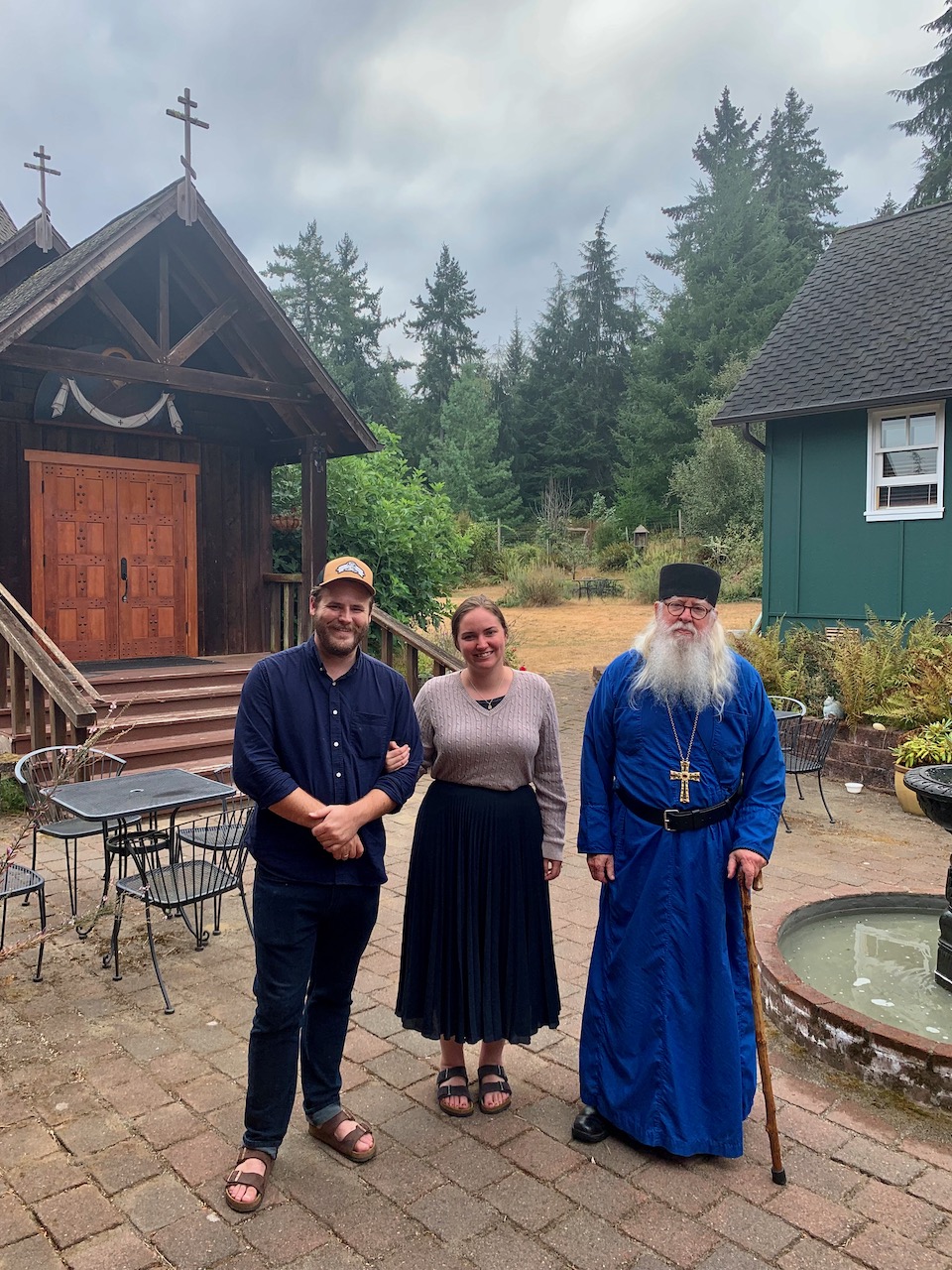Do Not Turn Right Or Left

According to Saint Basil the Great, “The person who does not allow his thought to incline towards excess or deprivation but directs it to the midpoint, that of virtue, is upright in his heart”. Virtue must be practiced. Just as one who would desire to play the piano must concentrate all their energy and attention to the keys and the music, so must we give ourselves over to the practicing of virtues.
Saint John Cassian tells us we should make every effort to strive “by humility to acquire for ourselves the good gift of sober-mindedness, which can preserve us unharmed by excess from both sides. For, as the Fathers say, the extremes from both sides are equally harmful—both excess of fasting and filling the belly, excess of vigil and excessive sleep, and other excesses.”
To walk this Royal Way (or Path) means we do not give ourselves over to excessive luke-warmness or indifference, regarding our Orthodox faith, nor do we see strictness or correctness, or even “canonicity” as the goal (Romans 10:2, “zeal not according to knowledge”). If we are to live according to Orthodox teachings, we can not give ourselves over to either living “in step with the times”, nor can we make “strictness” or “correctness” the end all.
As we strive to live our lives in balance, avoiding the extremes of excess on both sides, we must allow our moderation to become for us the living of our faith. By striving to live our lives in pursuit of virtue, we will walk the Royal Way in all sobriety, with humility and virtue our rule, and Christ as our compass.
With love in Christ,
Abbot Tryphon
Tuesday September 13, 2022 / August 31, 2022
14th Week after Pentecost. Tone four.
The Placing of the Cincture (Sash) of the Most Holy Theotokos (395-408).
New Hieromartyr Alexander priest and Vladimir deacon (1918).
New Hieromartyrs Michael and Myron priests (1937).
New Hieromartyr Demetrius (1938).
Hieromartyr Cyprian, bishop of Carthage (258).
St. Gennadius, patriarch of Constantinople (471).
New Martyrs of Jasenovac (1941-1945) (Serbia).
St. John, metropolitan of Kiev (1089).
St. Paulinus, bishop of Trier (358).
St. Gennadius Scholarius, patriarch of Constantinople (1372).
St. Eanswythe, abbess, of Folkestone (England) (640) (Celtic & British).
St. Cuthburga, abbess of Wimborne (Celtic & British).
St. Aidan, bishop of Lindisfarne (651) (Celtic & British).
Four Martyrs of Perge in Pamphylia (Greek).
Martyrs: Menas, Faustus, Andrew, Heraclius, Phileortus and Diadoch (Greek).
Martyr Phileortus (Greek).
Martyr Diadoch (Greek)
Eight Virgin-martyrs of Gaza (Greek).
366 Martyrs of Nicomedia (Greek).
The Scripture Readings
2 Corinthians 12:20-13:2
20 For I fear lest, when I come, I shall not find you such as I wish, and that I shall be found by you such as you do not wish; lest there be contentions, jealousies, outbursts of wrath, selfish ambitions, backbitings, whisperings, conceits, tumults; 21 lest, when I come again, my God will humble me among you, and I shall mourn for many who have sinned before and have not repented of the uncleanness, fornication, and lewdness which they have practiced.
Coming with Authority
13 This will be the third time I am coming to you. “By the mouth of two or three witnesses every word shall be established.” 2 I have told you before, and foretell as if I were present the second time, and now being absent I write to those who have sinned before, and to all the rest, that if I come again I will not spare—
Mark 4:24-34
24 Then He said to them, “Take heed what you hear. With the same measure you use, it will be measured to you; and to you who hear, more will be given. 25 For whoever has, to him more will be given; but whoever does not have, even what he has will be taken away from him.”
The Parable of the Growing Seed
26 And He said, “The kingdom of God is as if a man should [a]scatter seed on the ground, 27 and should sleep by night and rise by day, and the seed should sprout and grow, he himself does not know how. 28 For the earth yields crops by itself: first the blade, then the head, after that the full grain in the head. 29 But when the grain ripens, immediately he puts in the sickle, because the harvest has come.”
The Parable of the Mustard Seed
30 Then He said, “To what shall we liken the kingdom of God? Or with what parable shall we picture it? 31 It is like a mustard seed which, when it is sown on the ground, is smaller than all the seeds on earth; 32 but when it is sown, it grows up and becomes greater than all herbs, and shoots out large branches, so that the birds of the air may nest under its shade.”
Jesus’ Use of Parables
33 And with many such parables He spoke the word to them as they were able to hear it. 34 But without a parable He did not speak to them. And when they were alone, He explained all things to His disciples.
